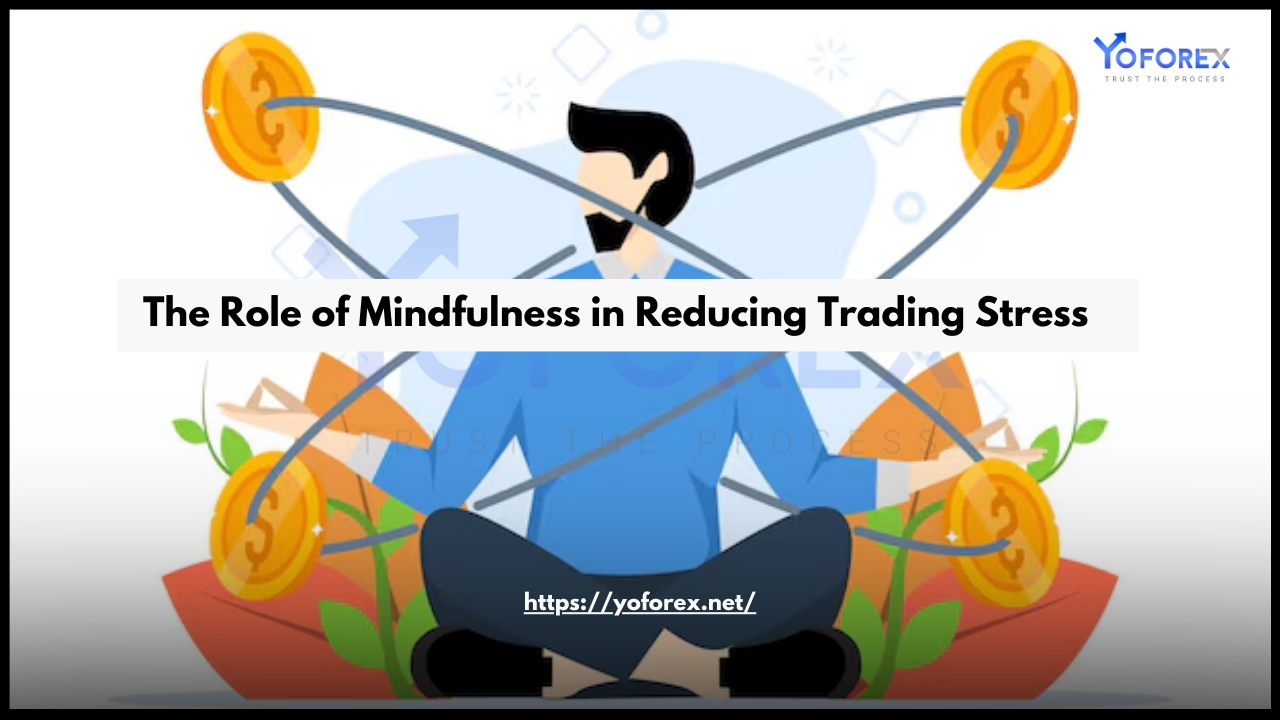Trading in financial markets, whether forex, stocks, or cryptocurrencies, can be both exhilarating and overwhelming. The fast-paced environment, market volatility, and high stakes can lead to significant stress, which may negatively impact decision-making and overall trading performance. Mindfulness, a practice rooted in ancient meditation techniques, has gained recognition as an effective tool for managing stress, improving focus, and fostering emotional stability. This article explores the role of mindfulness in reducing trading stress and enhancing a trader’s ability to navigate the markets with clarity and confidence.
Understanding Trading Stress
Trading stress arises from various factors, including uncertainty, financial risks, and emotional biases. Traders often experience anxiety due to fear of losses, pressure to perform, and the unpredictability of market movements. This stress can lead to impulsive decisions, revenge trading, or hesitation, ultimately affecting trading outcomes. Recognizing the sources of stress is the first step toward mitigating its impact on trading performance.
What is Mindfulness?
Mindfulness is the practice of being fully present in the moment, observing thoughts and emotions without judgment. It involves cultivating awareness of one’s actions, surroundings, and internal states. Mindfulness techniques, such as meditation, deep breathing, and body scans, help individuals develop a sense of calm and resilience in high-pressure situations.

How Mindfulness Helps Reduce Trading Stress
1. Enhancing Emotional Regulation
Mindfulness enables traders to observe their emotions without reacting impulsively. By recognizing fear, greed, or frustration as they arise, traders can avoid making emotionally driven decisions that may lead to losses. Instead of succumbing to panic during market downturns, a mindful trader remains composed and assesses the situation rationally.
2. Improving Focus and Concentration
Distractions and overanalysis often hinder trading performance. Mindfulness trains the mind to stay focused on the present trade rather than dwelling on past mistakes or worrying about future outcomes. Enhanced concentration helps traders execute strategies with precision and discipline.
3. Reducing Overtrading and Impulsiveness
One of the biggest pitfalls for traders is overtrading, often fueled by stress and the urge to recover losses quickly. Mindfulness promotes self-awareness, allowing traders to recognize when they are acting out of impulse rather than strategic analysis. This helps maintain discipline and adherence to a well-planned trading strategy.
4. Managing Fear and Anxiety
Fear of loss is a common stressor in trading. Mindfulness techniques, such as deep breathing and meditation, help calm the nervous system and reduce anxiety. By accepting that losses are a natural part of trading, traders can develop a balanced mindset and make rational decisions.
5. Enhancing Decision-Making Under Pressure
Trading often requires split-second decision-making, which can be compromised by stress. Mindfulness fosters a clear and present state of mind, allowing traders to assess market conditions objectively and make informed choices without emotional interference.
Practical Mindfulness Techniques for Traders
1. Mindful Breathing
Deep breathing exercises can help traders stay grounded during high-stress situations. Practicing slow, controlled breaths before and during trading sessions enhances focus and reduces nervousness.
2. Meditation
Regular meditation, even for a few minutes a day, strengthens mental resilience. Guided meditations designed for stress reduction or focus enhancement can be particularly beneficial for traders.
3. Journaling
Keeping a trading journal that includes emotional reflections helps traders identify patterns in their behavior. Noting down thoughts and emotions before and after trades provides insight into how stress influences decision-making.
4. Body Scans
A body scan meditation involves paying attention to physical sensations from head to toe. This practice helps traders recognize tension in their bodies and release stress before it affects their performance.
5. Practicing Gratitude
Maintaining a gratitude journal shifts focus from stress and losses to positive aspects of trading, such as learning experiences and progress. A grateful mindset fosters resilience and reduces emotional reactivity.
Incorporating Mindfulness into a Trading Routine
To maximize the benefits of mindfulness, traders should integrate these practices into their daily routine:
- Start the day with mindfulness meditation to set a calm and focused tone.
- Use mindful breathing before entering trades to reduce pre-trade anxiety.
- Take mindful breaks between trading sessions to reset and avoid burnout.
- Reflect on emotions and trading decisions at the end of the day to identify areas for improvement.
- Avoid screen overload by stepping away from charts periodically to prevent stress accumulation.
Conclusion
Mindfulness is a powerful tool for reducing trading stress, improving emotional regulation, and enhancing decision-making. By incorporating mindfulness practices into their routine, traders can develop greater resilience, discipline, and focus, ultimately leading to more consistent and profitable trading outcomes. In the ever-evolving world of trading, maintaining a mindful approach can be the key to long-term success and well-being.

